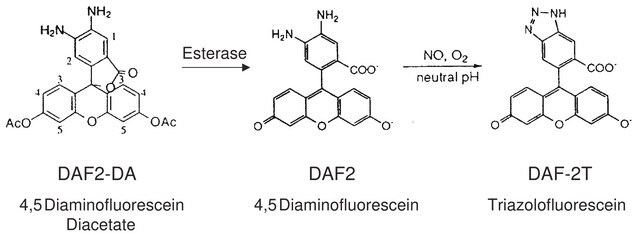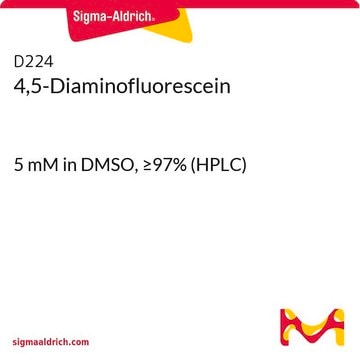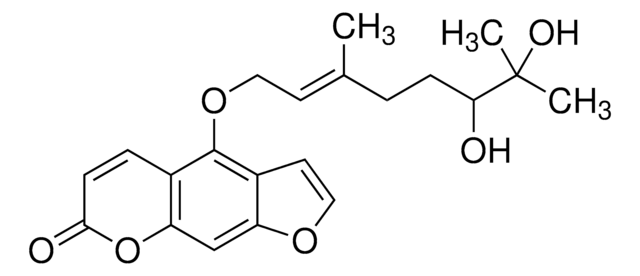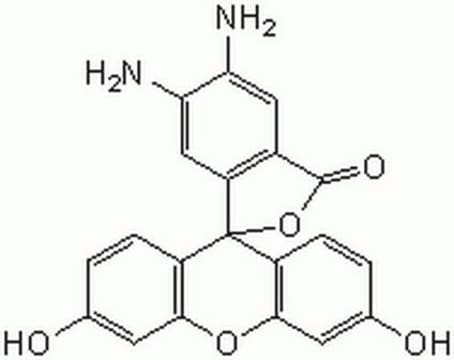APPA010
In Vitro Mammalian Optimized Split GFP Fold ′n′ Glow™ Solubility Assay Kit (cyan)
Iniciar sesiónpara Ver la Fijación de precios por contrato y de la organización
About This Item
UNSPSC Code:
12352204
NACRES:
NA.25
Productos recomendados
Application
The Fold ′n′ Glow Protein Solubility Assay kit allows a test protein to be expressed as an N-terminal fusion with a fluorescent protein [i.e., Green Fluorescent Protein (GFP), Cyan Fluorescent Protein (CFP), and Yellow Fluorescent Protein (YFP)]. This allows the detection of protein properly folded in a given sample as the folding reporter gives a signal directly proportional to the amount of correctly folded protein. The kit can be used for the detection and quantification of any protein by tagging and detecting either soluble or insoluble proteins.
Features and Benefits
Fluorescent protein (GFP, CFP, or YFP) fusions and split protein tags are widely used for the analysis of protein. These large tags can perturb protein solubility, misfold, and alter the processing of the protein. The split fluorescent protein technology used in the "Fold ′n′ Glow" assay overcomes these problems. The protein tag is a genetically encoded, split fluorescent protein technology, engineered with small, soluble, self-associating fragments. Thus, it is a simple split fluorescent protein system that doesn′t change fusion protein solubility, or require chemical ligation, fused interacting partners, co-expression, or co-refolding. Furthermore, while fluorogenic biarsenical FlaSH or ReASH substrates also overcome these limitations, they also require many other conditions not necessarywhen using the split fluorescent protein technology. Thefluorescent protein system is a simple and easy tagging and detection system. These kits may be used to quantify the expression level of the tagged protein, to determine the solubility of a protein, or to determine the solubility of a protein′s domain.
Suitability
This kit contains sufficient reagents for one 96 well plate (96 tests)
Principle
The kit is a protein tagging and detection method that uses split fluorescent protein technology in a fluorescent complementation assay. The protein to be quantified is fused to a small fluorescent protein fragment (contained in the S11 plasmid) via a flexible linker. Expressed separately, neither the fusion protein of interest nor the fluorescent protein detector (Universal Detection Reagent S1-10) is fluorescent. When mixed, the properly folded fusion protein and detector spontaneously associate, completing the fluorophore. Misfolding or aggregation of the fusion protein makes the fluorescent protein tag inaccessible and prevents complementation, thus preventing fluorescence. Therefore, misfolded or aggregated proteins are not included in the quantification of the protein of interest.
Legal Information
Fold 'n' Glow is a trademark of Sandia BioTech
Storage Class
10 - Combustible liquids
flash_point_f
Not applicable
flash_point_c
Not applicable
Certificados de análisis (COA)
Busque Certificados de análisis (COA) introduciendo el número de lote del producto. Los números de lote se encuentran en la etiqueta del producto después de las palabras «Lot» o «Batch»
¿Ya tiene este producto?
Encuentre la documentación para los productos que ha comprado recientemente en la Biblioteca de documentos.
New molecular reporters for rapid folding assays.
Cabantous et al.
PLoS ONE, 3 (6) (2008)
Stéphanie Cabantous et al.
Nature biotechnology, 23(1), 102-107 (2004-12-08)
Existing protein tagging and detection methods are powerful but have drawbacks. Split protein tags can perturb protein solubility or may not work in living cells. Green fluorescent protein (GFP) fusions can misfold or exhibit altered processing. Fluorogenic biarsenical FLaSH or
G S Waldo et al.
Nature biotechnology, 17(7), 691-695 (1999-07-15)
Formation of the chromophore of green fluorescent protein (GFP) depends on the correct folding of the protein. We constructed a "folding reporter" vector, in which a test protein is expressed as an N-terminal fusion with GFP. Using a test panel
Nuestro equipo de científicos tiene experiencia en todas las áreas de investigación: Ciencias de la vida, Ciencia de los materiales, Síntesis química, Cromatografía, Analítica y muchas otras.
Póngase en contacto con el Servicio técnico







